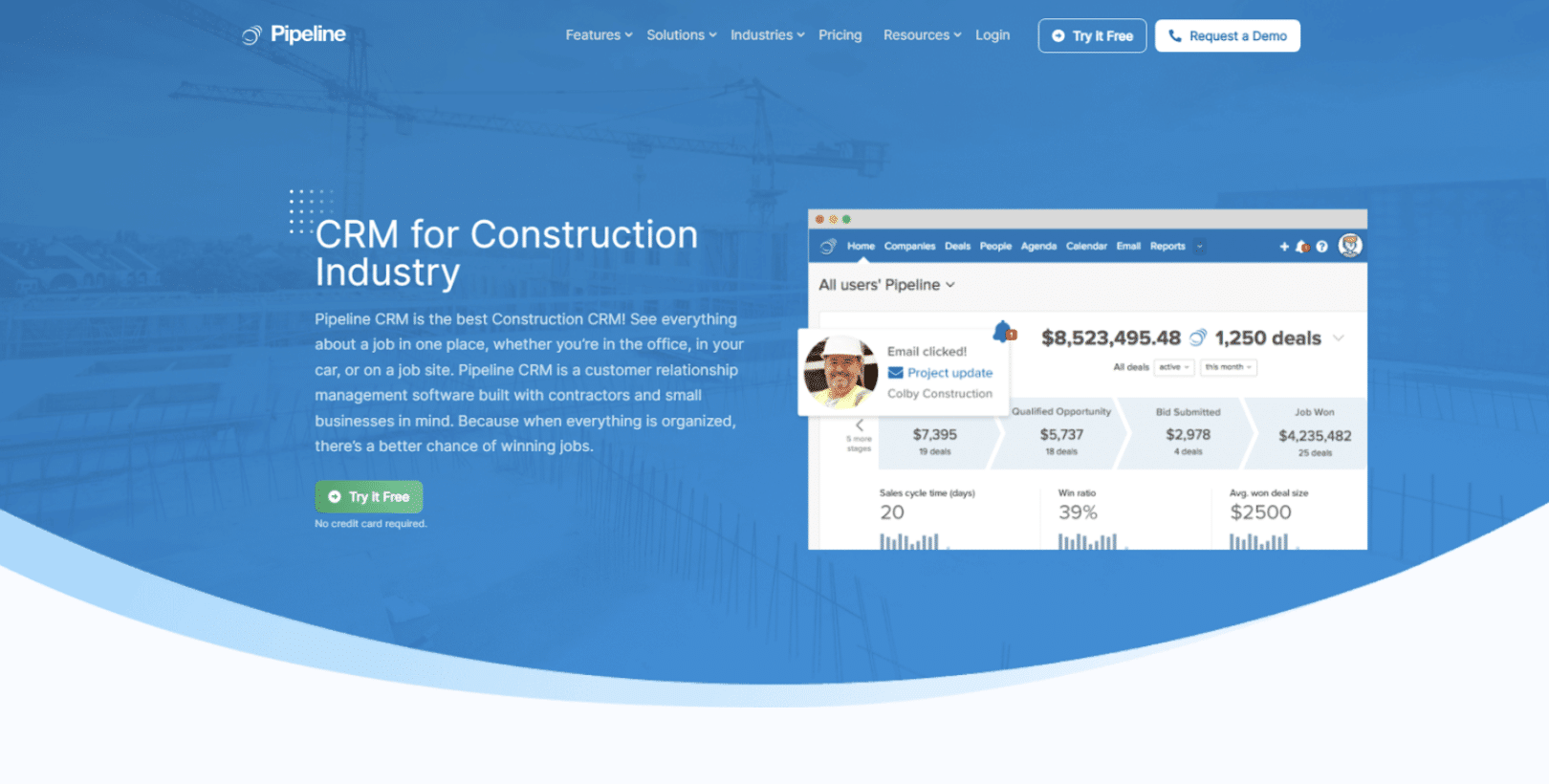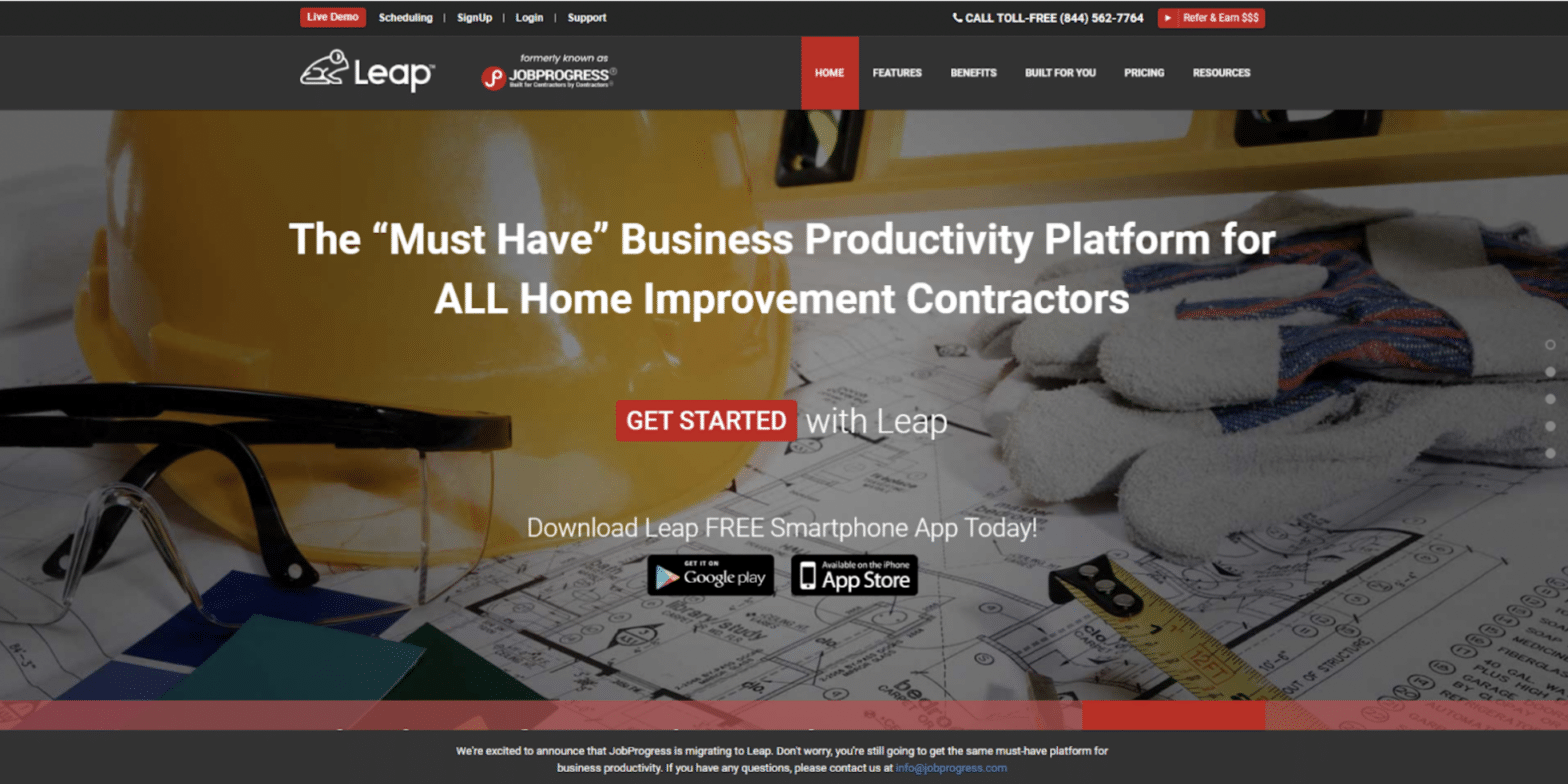Best CRM Software for Construction Companies: Streamlining Processes and Enhancing Communication
Beginning with Best CRM Software for Construction Companies, the narrative unfolds in a compelling and distinctive manner, drawing readers into a story that promises to be both engaging and uniquely memorable.
CRM software plays a crucial role in the construction industry, revolutionizing how companies manage client relationships and streamline their operations. This article dives into the key features, benefits, and top options available, providing valuable insights for construction businesses looking to enhance their efficiency and productivity.
Importance of CRM Software for Construction Companies

CRM software plays a crucial role in the construction industry by streamlining processes, improving client relationships, and enhancing communication within construction teams.
Streamlining Processes
- Centralized Data Management: CRM software allows construction companies to store all client information, project details, and communication in one centralized platform, making it easier to access and manage.
- Automation of Tasks: With CRM software, repetitive tasks such as sending follow-up emails, scheduling appointments, and generating reports can be automated, saving time and improving efficiency.
Managing Client Relationships
- Personalized Communication: CRM software enables construction companies to personalize communication with clients by storing preferences, past interactions, and project details, leading to better customer relationships.
- Timely Follow-Ups: By setting reminders and automated follow-up processes, CRM software helps construction companies stay in touch with clients, enhancing customer satisfaction and loyalty.
Improving Communication Within Teams
- Real-Time Updates: CRM software allows construction teams to access project updates, client information, and communication logs in real-time, facilitating collaboration and decision-making.
- Task Assignment and Tracking: Construction managers can assign tasks, track progress, and monitor team performance through CRM software, ensuring timely project completion and efficient resource allocation.
Key Features to Look for in CRM Software for Construction Companies

When selecting CRM software for construction companies, it is crucial to consider key features that are essential for managing projects, contacts, and reporting. Additionally, mobile access, integration with other construction software, and customization options play a vital role in enhancing efficiency and productivity within the construction industry.
Project Management Tools
- Ability to track project progress, milestones, and deadlines
- Resource allocation and scheduling functionalities
- Budgeting and cost management tools
- Document management and collaboration features
Contact Management
- Centralized database for storing client information and communication history
- Automated lead capturing and follow-up processes
- Integration with communication channels such as email and phone
- Customizable fields for capturing specific client details
Reporting Capabilities
- Real-time analytics and dashboards for monitoring performance
- Customizable reports for tracking sales, projects, and client interactions
- Forecasting tools for predicting future trends and opportunities
- Integration with accounting software for financial reporting
Mobile Access and Integration
- Mobile-friendly interface for accessing CRM on the go
- Syncing capabilities with mobile devices for updated information
- Integration with project management and scheduling apps for seamless workflow
- Remote access to project updates and client data for field personnel
Customization Options
- Ability to tailor CRM features to specific business needs and workflows
- Customizable templates for project proposals, contracts, and invoices
- Scalable solutions that can grow with the business and adapt to changing requirements
- Options for adding or removing modules based on the company's needs
Comparison of Top CRM Software Options for Construction Companies

When it comes to choosing the right CRM software for your construction company, it's crucial to consider various factors such as key features, pricing, and customer reviews. Here, we will compare some of the top CRM software options available in the market and how they cater to the unique requirements of construction companies while analyzing their scalability for growing businesses.
Salesforce
Salesforce is a popular CRM software that offers a wide range of features tailored for construction companies. With tools for project management, lead tracking, and customer communication, Salesforce helps streamline operations and improve efficiency. The pricing of Salesforce varies based on the specific needs of your business, making it suitable for both small and large construction companies.
Customer reviews praise Salesforce for its user-friendly interface and robust customization options, making it a top choice for many in the industry.
Procore
Procore is another CRM software designed specifically for the construction industry. It offers features such as bid management, budget tracking, and document sharing to help construction companies stay organized and on track. Procore's pricing is competitive, with different plans available to suit the needs of various construction businesses.
Customer reviews highlight Procore's ease of use and comprehensive reporting capabilities, making it a valuable tool for construction project management.
BuilderTREND
BuilderTREND is a popular CRM software known for its focus on project management and collaboration. With features like scheduling, budgeting, and client communication, BuilderTREND helps construction companies streamline their processes and improve communication with clients. The pricing of BuilderTREND is transparent and scalable, making it a good option for construction businesses of all sizes.
Customer reviews commend BuilderTREND for its intuitive interface and excellent customer support, making it a top choice for construction project management.
Conclusion
Each of these CRM software options offers unique features and benefits tailored to the specific needs of construction companies. It's essential to consider factors such as pricing, key features, and customer reviews when choosing the right CRM software for your construction business.
By analyzing the scalability and suitability of each CRM software, construction companies can make an informed decision that will help them streamline operations and grow their business effectively.
Implementation and Training Process for CRM Software in Construction Companies
Implementing CRM software in construction companies can significantly improve efficiency and productivity. However, it is crucial to follow a structured approach to ensure successful implementation and provide adequate training to employees.
Step-by-Step Guide for Implementing CRM Software
- Assess the specific needs and requirements of the construction company to choose the most suitable CRM software solution.
- Set clear objectives and goals for implementing CRM software to track progress effectively.
- Customize the CRM software to align with the workflows and processes of the construction company.
- Integrate CRM software with existing systems to ensure seamless data flow and communication.
- Train a core team of employees to become CRM champions who can assist in the implementation process and provide ongoing support.
Importance of Training Employees on Using CRM Software
Training employees on using CRM software effectively is essential to maximize the benefits of the system. It helps employees understand how to leverage the features of the CRM software to streamline processes, improve communication, and enhance customer relationships.
Tips for Overcoming Common Challenges During Implementation
- Communicate clearly with employees about the reasons for implementing CRM software and the benefits it will bring to the organization.
- Provide hands-on training and ongoing support to address any issues or questions that arise during the implementation process.
- Encourage feedback from employees to identify areas for improvement and make necessary adjustments to the CRM software.
- Monitor progress regularly and make data-driven decisions to optimize the use of CRM software in construction projects.
Conclusive Thoughts
In conclusion, the adoption of the best CRM software can significantly impact how construction companies operate, leading to improved communication, better project management, and enhanced client relationships. By leveraging the right CRM tools, construction businesses can stay ahead in a competitive market and achieve long-term success.
FAQ Guide
What are the benefits of using CRM software in construction companies?
CRM software helps in streamlining processes, managing client relationships effectively, and improving communication within construction teams.
What key features should construction companies look for in CRM software?
Essential features include project management tools, contact management, reporting capabilities, mobile access, integration with other construction software, and customization options to fit specific business needs.
How can construction companies successfully implement CRM software?
Construction companies can implement CRM software by following a step-by-step guide, training employees effectively on its usage, and overcoming common challenges during the implementation process.